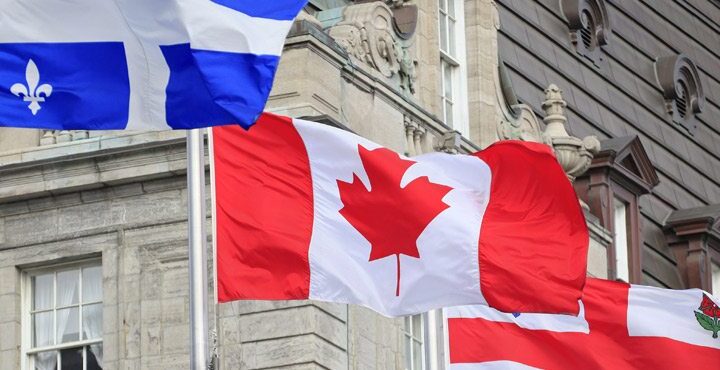How Are Bonuses Taxed in Canada?
TurboTax Canada
February 10, 2025 | 5 Min Read
Updated for tax year 2025

Most of us are excited about the idea of getting a bonus on top of what we usually earn—and why wouldn’t we be? While extra funds sound great, keep in mind you still have to pay tax on this amount, just like any other money you earn. And, if you’re not aware of how bonuses work, you may find yourself with an unexpected balance come tax time once you file your taxes.
So sit back, relax, and take a few minutes to get up to speed on how bonuses are taxed in Canada.
Key Takeaways
- Getting a bonus is exciting, but you should make sure you add that extra lump sum of money to your taxable income for the year.
- Bonus are taxed the same way as your salary, following the marginal federal and provincial tax rates. It gets reported along with your employment income on your tax return when you file your taxes.
- Your employer can deposit your bonus directly into your RRSP with no tax withholding if you have enough contribution room in the year in which the bonus was earned.
Are bonuses taxed differently than salaries in Canada?
No. Taxes are calculated for your both regular salary and bonuses in the same way. Your bonus is taxed according to the same federal and provincial/territorial tax rates that the rest of your income is taxed. However, it might seem like you’re getting taxed more on that extra money because more of your earnings may end up in a higher tax bracket.
As you may already know, Canada has a marginal tax system, which means different income levels are taxed at different rates. Adding a bonus on top of your salary could mean that a portion of your income is bumped into a higher tax bracket. And then you end up paying a higher tax rate for that portion of income, which includes your bonus. (Curious about what the tax rates are? You’ll find them at the end of this article.)
How bonuses are taxed in Canada?
Bonuses are considered “supplemental income,” which simply means money you earn over and above your regular paycheque. In Canada, this supplemental income is subject to income tax, just like your regular salary. In other words, your regular salary and your bonus are subject to the exact same amount and type of tax.
Also, just like your salary, your bonus will include deductions like the Canada Pension Plan (CPP) and Employment Insurance (EI). (The only exception is if you’ve already made the maximum contributions for the year.)
How much tax is deducted from a bonus in Canada?
Let’s use an example to calculate the tax owed on a bonus. Ravi lives in Ontario and makes $100,000 a year in his tech job. His company awarded him a bonus of $8,000 at the end of the fiscal year. Here’s how we could calculate the tax on a bonus in Ontario:
First, use TurboTax’s handy Income Tax Calculator and select Ontario to see what Ravi would owe for his regular salary. For 2025, he would owe an estimated $20,469 in taxes. (That’s $13,642 in federal tax + $6,827 in provincial tax.)
Then, add the $8,000 bonus to his $100,000 salary to get $108,000. The estimated tax owed on this amount is $23,016. (That’s $15,282 in federal tax + $7,733 in provincial tax.)
To find out how much Ravi would owe on the $8,000 bonus alone, subtract the two totals ($23,016 – $20,469 = $2,547). Therefore, Ravi would pay $2,547 on his $8,000 bonus.
How to report a bonus on your tax return
Now, here’s the easy part. To report a bonus on your tax return, simply include where you report employment income, aka line 10100 of your tax return. This is where you’ll report everything from salary, wages, and commissions to bonuses, tips/gratuities, and honoraria. Your bonus will also appear in Box 14 (employment income) on your T4 slip (and often in Box 40—other taxable allowances and benefits—as well).
Bonus tax and RRSPs
Some people like to deposit their bonus directly into an RRSP. If your employer does this, then there’s no tax withholding. And the benefit is that you don’t have to wait for a tax refund to start investing the amount.
However, your contribution room for the year remains the same, and the bonus counts toward the year it was awarded.
What are the federal and provincial bonus tax rates?
To help you determine your taxes owing, here are your marginal federal and provincial/territorial tax rates!
2025 federal income tax rates
These rates apply to everyone who earns income in Canada.
| Tax rate | Taxable income threshold |
|---|---|
| 14.5% Footnote1 | on the portion of taxable income that is $57,375 or less, plus |
| 20.5% | on the portion of taxable income over $57,375 up to $114,750, plus |
| 26% | on the portion of taxable income over $114,750 up to $177,882, plus |
| 29% | on the portion of taxable income over $177,882 up to $253,414, plus |
| 33% | on the portion of taxable income over $253,414 |
2025 provincial and territorial income tax rates
The following tax rates depend on where in Canada you live.
Newfoundland and Labrador
| Tax rate | Taxable income threshold |
|---|---|
| 8.7% | on the portion of taxable income that is $44,192 or less, plus |
| 14.5% | on the portion of taxable income over $44,192 up to $88,382, plus |
| 15.8% | on the portion of taxable income over $88,382 up to $157,792, plus |
| 17.8% | on the portion of taxable income over $157,792 up to $220,910, plus |
| 19.8% | on the portion of taxable income over $220,910 up to $282,214, plus |
| 20.8% | on the portion of taxable income over $282,214 up to $564,429, plus |
| 21.3% | on the portion of taxable income over $564,429 up to $1,128,858, plus |
| 21.8% | on the portion of taxable income over $1,128,858 |
Prince Edward Island
| Tax rate | Taxable income threshold |
|---|---|
| 9.5% | on the portion of taxable income that is $33,328 or less, plus |
| 13.47% | on the portion of taxable income over $33,328 up to $64,656, plus |
| 16.6% | on the portion of taxable income over $64,656 up to $105,000, plus |
| 17.62% | on the portion of taxable income over $105,000 up to $140,000, plus |
| 19% | on the portion of taxable income over $140,000 |
Nova Scotia
| Tax rate | Taxable income threshold |
|---|---|
| 8.79% | on the portion of taxable income that is $30,507 or less, plus |
| 14.95% | on the portion of taxable income over $30,507 up to $61,015, plus |
| 16.67% | on the portion of taxable income over $61,015 up to $95,883, plus |
| 17.5% | on the portion of taxable income over $95,883 up to $154,650, plus |
| 21% | on the portion of taxable income over $154,650 |
New Brunswick
| Tax rate | Taxable income threshold |
|---|---|
| 9.4% | on the portion of taxable income that is $51,306 or less, plus |
| 14% | on the portion of taxable income over $51,306 up to $102,614, plus |
| 16% | on the portion of taxable income over $102,614 up to $190,060, plus |
| 19.5% | on the portion of taxable income over $190,060 |
Quebec
| Taxable income | Rate |
|---|---|
| $53,255 or less | 14% |
| More than $53,255 but not more than $106,495 | 19% |
| More than $106,495 but not more than $129,590 | 24% |
| More than $129,590 | 25.75% |
Ontario
| Tax rate | Taxable income threshold |
|---|---|
| 5.05% | on the portion of taxable income that is $52,886 or less, plus |
| 9.15% | on the portion of taxable income over $52,886 up to $105,775, plus |
| 11.16% | on the portion of taxable income over $105,775 up to $150,000, plus |
| 12.16% | on the portion of taxable income over $150,000 up to $220,000, plus |
| 13.16% | on the portion of taxable income over $220,000 |
Manitoba
| Tax rate | Taxable income threshold |
|---|---|
| 10.8% | on the portion of taxable income that is $47,564 or less, plus |
| 12.75% | on the portion of taxable income over $47,564 up to $101,200, plus |
| 17.4% | on the portion of taxable income over $101,200 |
Saskatchewan
| Tax rate | Taxable income threshold |
|---|---|
| 10.5% | on the portion of taxable income that is $53,463 or less, plus |
| 12.5% | on the portion of taxable income over $53,463 up to $152,750, plus |
| 14.5% | on the portion of taxable income over $152,750 |
Alberta
| Tax rate | Taxable income threshold |
|---|---|
| 8% | on the portion of taxable income that is $60,000 or less, plus |
| 10% | on the portion of taxable income over $60,000 up to $151,234, plus |
| 12% | on the portion of taxable income over $151,234 up to $181,481, plus |
| 13% | on the portion of taxable income over $181,481 up to $241,974, plus |
| 14% | on the portion of taxable income over $241,974 up to $362,961, plus |
| 15% | on the portion of taxable income over $362,961 |
British Columbia
| Tax rate | Taxable income threshold |
|---|---|
| 5.06% | on the portion of taxable income that is $49,279 or less, plus |
| 7.7% | on the portion of taxable income over $49,279 up to $98,560, plus |
| 10.5% | on the portion of taxable income over $98,560 up to $113,158, plus |
| 12.29% | on the portion of taxable income over $113,158 up to $137,407, plus |
| 14.7% | on the portion of taxable income over $137,407 up to $186,306, plus |
| 16.8% | on the portion of taxable income over $186,306 up to $259,829, plus |
| 20.5% | on the portion of taxable income over $259,829 |
Yukon
| Tax rate | Taxable income threshold |
|---|---|
| 6.4% | on the portion of taxable income that is $57,375 or less, plus |
| 9% | on the portion of taxable income over $57,375 up to $114,750, plus |
| 10.9% | on the portion of taxable income over $114,750 up to $177,882, plus |
| 12.8% | on the portion of taxable income over $177,882 up to $500,000, plus |
| 15% | on the portion of taxable income over $500,000 |
Northwest Territories
| Tax rate | Taxable income threshold |
|---|---|
| 5.9% | on the portion of taxable income that is $51,964 or less, plus |
| 8.6% | on the portion of taxable income over $51,964 up to $103,930, plus |
| 12.2% | on the portion of taxable income over $103,930 up to $168,967, plus |
| 14.05% | on the portion of taxable income over $168,967 |
Nunavut
| Tax rate | Taxable income threshold |
|---|---|
| 4% | on the portion of taxable income that is $54,707 or less, plus |
| 7% | on the portion of taxable income over $54,707 up to $109,413, plus |
| 9% | on the portion of taxable income over $109,413 up to $177,881, plus |
| 11.5% | on the portion of taxable income over $177,881 |
Make sure you understand what you owe for bonus tax in Canada
Getting a bonus for your hard work is definitely exciting. But to avoid being surprised by the taxes you’ll owe, make sure that you understand how bonuses are taxed and are familiar with your marginal tax rates. If you still have questions, the experts at TurboTax can help you with bonus tax calculations in Canada.
Seem complicated? We’re here to help
TurboTax software guides you step-by-step so you’re confident your taxes are done right, and you’ll get every dollar you deserve.
Get StartedRelated articles

© 1997-2024 Intuit, Inc. All rights reserved. Intuit, QuickBooks, QB, TurboTax, Profile, and Mint are registered trademarks of Intuit Inc. Terms and conditions, features, support, pricing, and service options subject to change without notice.
Copyright © Intuit Canada ULC, 2024. All rights reserved.
The views expressed on this site are intended to provide generalized financial information designed to educate a broad segment of the public; it does not give personalized tax, investment, legal, or other business and professional advice. Before taking any action, you should always seek the assistance of a professional who knows your particular situation for advice on taxes, your investments, the law, or any other business and professional matters that affect you and/or your business.









